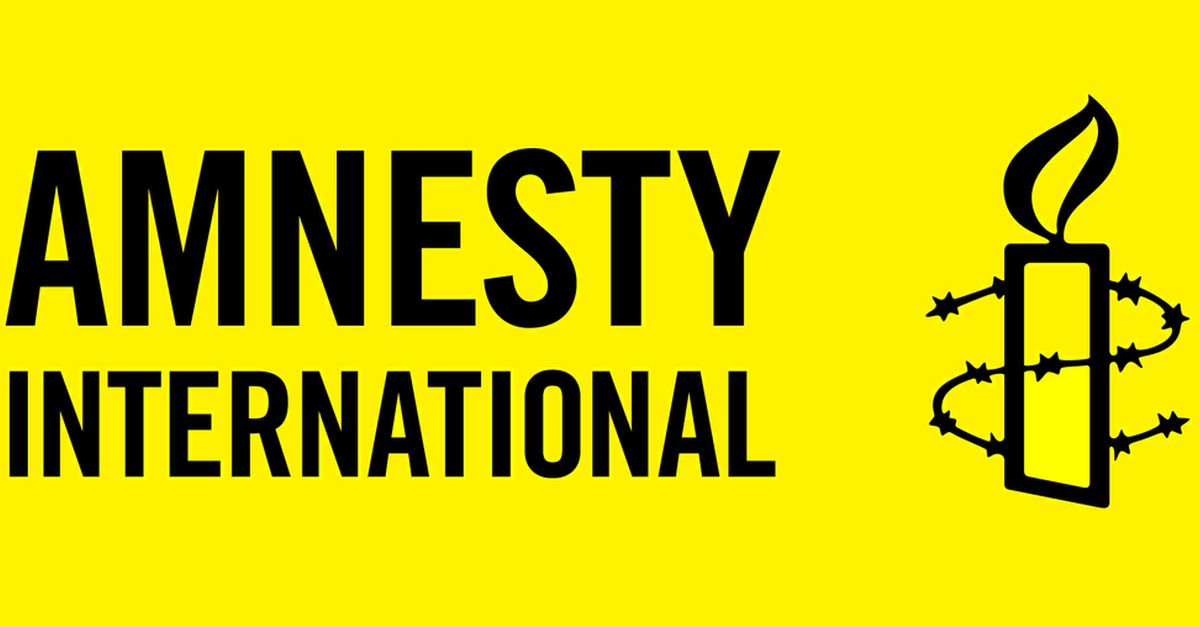Human Rights

This is a work in progress, keep checking back. -==- Must Read -==- - [UN Universal Declaration of Human Rights](https://lemmy.sdf.org/post/17661292) - [UN UDHR Illustrated Book](https://www.un.org/en/udhrbook/) - [International Covenant on Economic, Social and Cultural Rights](https://lemmy.sdf.org/post/17708289) - [Easy-to-read version of the Human Rights Covenants](https://lemmy.sdf.org/post/17841177) - [Communicating During Contentious Times: Dos and Don'ts to Rise Above the Noise](https://lemmy.sdf.org/post/17811539) -==- Should Read -==- - [[1931-1932] [resource] The Einstein-Freud Correspondence](https://lemmy.sdf.org/post/17661588) -==- Difficult Conversations -==- - [Are human rights a valid social intervention or harmful?](https://lemmy.sdf.org/post/17757097) - [Exxon Mobil predicts global temperature increase over 2 degrees Celsius by 2050](https://lemmy.sdf.org/post/17897422) - [IAEA Presents Sustainable Energy Planning Toolkit to the G20](https://lemmy.sdf.org/post/17907463) - [Should Artificial Intelligence be given human rights?](https://lemmy.sdf.org/post/17714979) - [Joe Biden’s Cruel Border Shutdown Follows in Clinton and Obama’s Footsteps Too](https://lemmy.sdf.org/post/17843427)
 phys.org
phys.org
Here is the study: https://www.science.org/doi/10.1126/science.adp1274 Most people in most countries state that they wish to have a democratic government. But the definition of democracy has been constantly contested. Without understanding what people really mean by democracy, the concept is vulnerable to being exploited by dictators and anti-democratic politicians for their own ends. [...] A new research study led by the University of Oxford, National University of Singapore, and Emory University has now shed light on the question: "How do people around the world define democracy?" The study surveyed over 6,000 people from the United States, Italy, Egypt, India, Thailand, and Japan- countries with highly different political regimes, democratic histories, geographic regions, levels of development, and cultural backgrounds. The study explored how people prioritize nine different attributes in their understanding of what makes a country democratic, using examples of hypothetical countries. [...] - Overwhelmingly, participants were significantly more likely to view countries that select their leaders through **free and fair elections** as more democratic than countries without elections. - Participants were also significantly more likely to view countries with **strong protections for civil liberties** as more democratic compared with countries without such protections. - The relevance of these was consistent regardless of people's age, gender, education, minority status, or political ideology. - **After elections and liberties, the two most important attributes were gender equality, then economic equality**. Countries in which men and women have equal rights are more likely to be seen as democratic than countries with highly unequal gender rights. Relative equality between the rich and poor (compared with high inequality) also increased the likelihood that a country was seen as more democratic. - Then, countries where leaders must respect the legislature and courts' authority in decision making were more likely to be perceived as more democratic compared with countries in which the leader frequently bypasses the legislative and judicial branches when making decisions. - **In contrast, the researchers found little evidence of an "authoritarian" redefinition of democracy taking root anywhere.** Even within authoritarian countries such as Egypt or Thailand, democracy was still perceived as being rooted in elections and liberties.
cross-posted from: https://links.hackliberty.org/post/38945 > Question about #humanRights— Article 20 of the #UDHR¹ states: > > “① Everyone has the right to freedom of peaceful assembly and association. > > ② No one may be compelled to belong to an association.” > > How does that apply in the context of forced banking? If a government forces you to enter the marketplace and register for a bank account, does that qualify as being compelled to belong to an association? > > ¹UDHR: Universal Declaration of Human Rights > > #askFedi
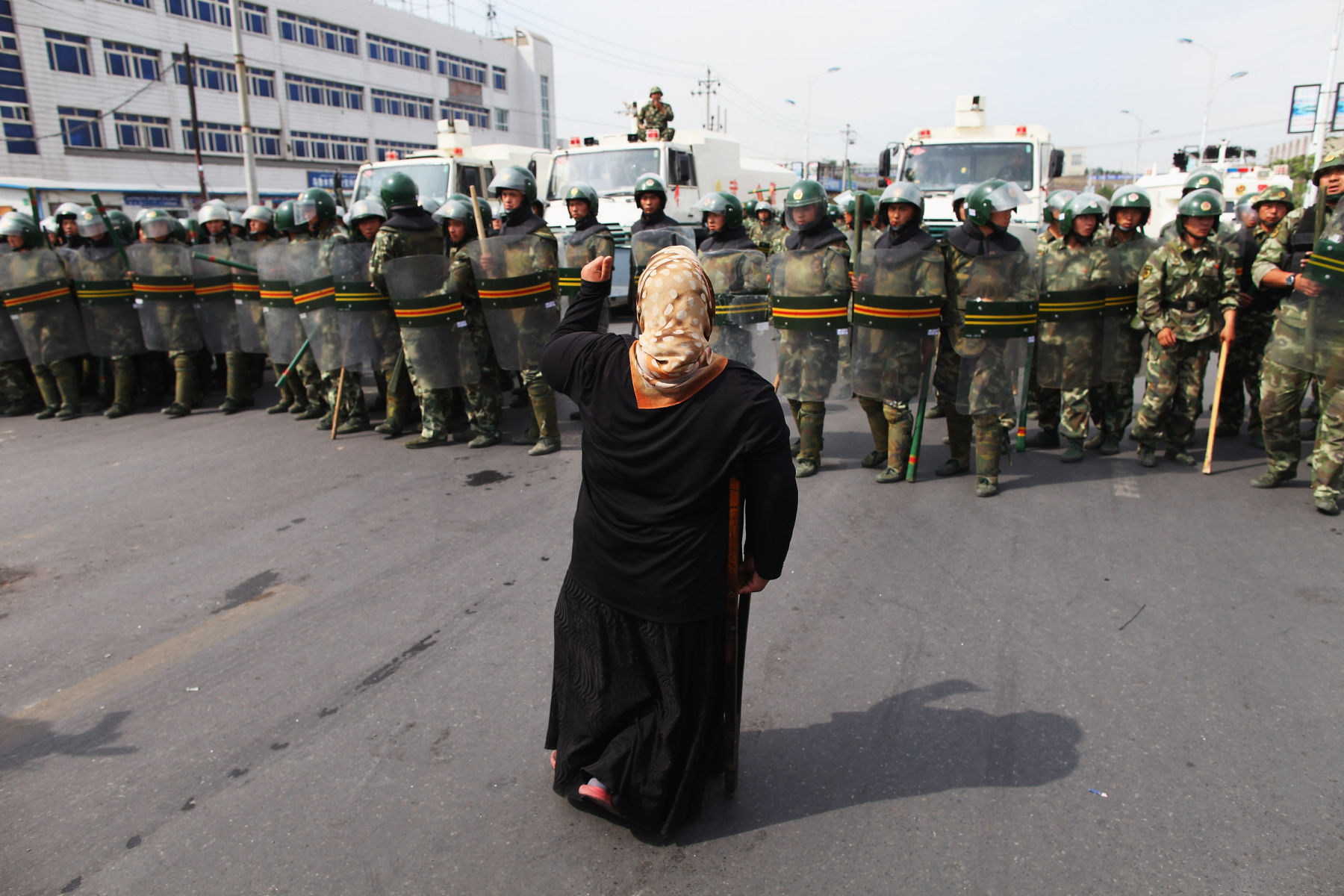 dawnmena.org
dawnmena.org
cross-posted from: https://feddit.org/post/3823927 > **"The dehumanization of Palestinians and the collective punishment they endure from Israel's war in Gaza have shattered the very fabric of their society, much like what China has inflicted upon my people," writes exiled Uyghur human rights lawyer Rayhan Asat.** > > The Palestinian mother watching a bulldozer tear through her house reminds me of every Uyghur mother whose home was invaded by Chinese forces. The rubble of schools and mosques destroyed in Gaza takes me back to my homeland, where the oldest shrines have been leveled, and our teachers handed life sentences. The surveillance system China tested against the Uyghurs has been exported to the streets of occupied Hebron. As Israeli settlers flood the West Bank with the full support of Israel's government, I'm reminded of the millions of Han people that China brought into my homeland, where they receive special privileges in an apartheid system the world has ignored for decades. > > [...] > > Israeli atrocities in Gaza, and the intentional blocking of humanitarian aid that has led to starvation and the spread of polio in the besieged territory, have sparked global outrage, especially among young people. However, this same level of outrage has not been directed toward China's systematic efforts to slowly eradicate the Uyghur people in its prison camps. Some argue that the differing reactions are due to America's direct support for Israel's war in Gaza, but victims do not suffer less because of the identity of their perpetrator. If human rights are truly universal, then what happens in Gaza and Xinjiang should equally outrage us all.
 www.barrons.com
www.barrons.com
> New York-headquartered Human Rights Watch and the Cairo Institute for Human Rights (CIHR) said that at the end of September there was a "wave" of arrests of people "peacefully celebrating or posting on social media" about the anniversary marking the creation of the Yemen Arab Republic. > The groups said the Iran-backed Huthis, who control vast swathes of Yemen including its capital Sanaa, had brought no charges against the protesters and "should immediately release all those who were detained solely for exercising their right to freedom of assembly and speech". > The Huthis have kidnapped, arbitrarily detained and tortured hundreds of civilians, including UN and NGO workers, since the start of Yemen's civil war in 2014, according to rights groups.
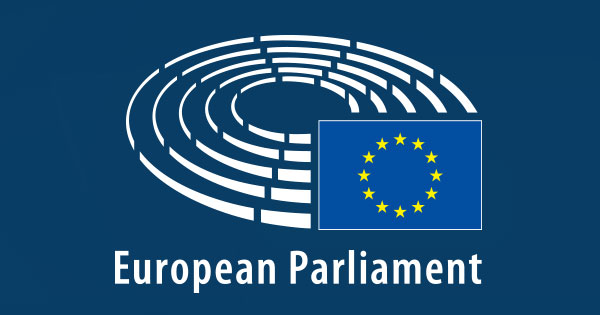 www.europarl.europa.eu
www.europarl.europa.eu
cross-posted from: https://feddit.org/post/3660846 > - The European Parliament (EP) urges Turkish authorities to drop the charges against **Bülent Mumay** and all other arbitrarily detained media workers, political opponents, human rights defenders, civil servants and academics. Türkiye deplores "a complex web of legislation that systematically silences and controls journalists, and denounce the new “foreign agent regulation” to be introduced by the end of 2024", the EP says in a statement. > > - China must immediately and unconditionally release **Ilham Tohti**, 2019 Sakharov Prize laureate, and **Gulshan Abbas**, as well as all those arbitrarily detained in China, MEPs say. They strongly condemn the human rights violations against Uyghurs and people in Tibet, Hong Kong, Macau and mainland China. > > - For Iraq, the EP resolution underlines that new proposed laws do not legally protect **women and child victims** of domestic violence in the country and deplore the fact that the proposed amendments to the law, if enacted, would lead to an even more radical application of Sharia law. > > The resolution urges Iraq to adopt a national action plan to eliminate child marriage, criminalise marital rape, fight domestic violence and strengthen women’s and girls’ rights, in line with the UN Convention on the Elimination of All Forms of Discrimination against Women.
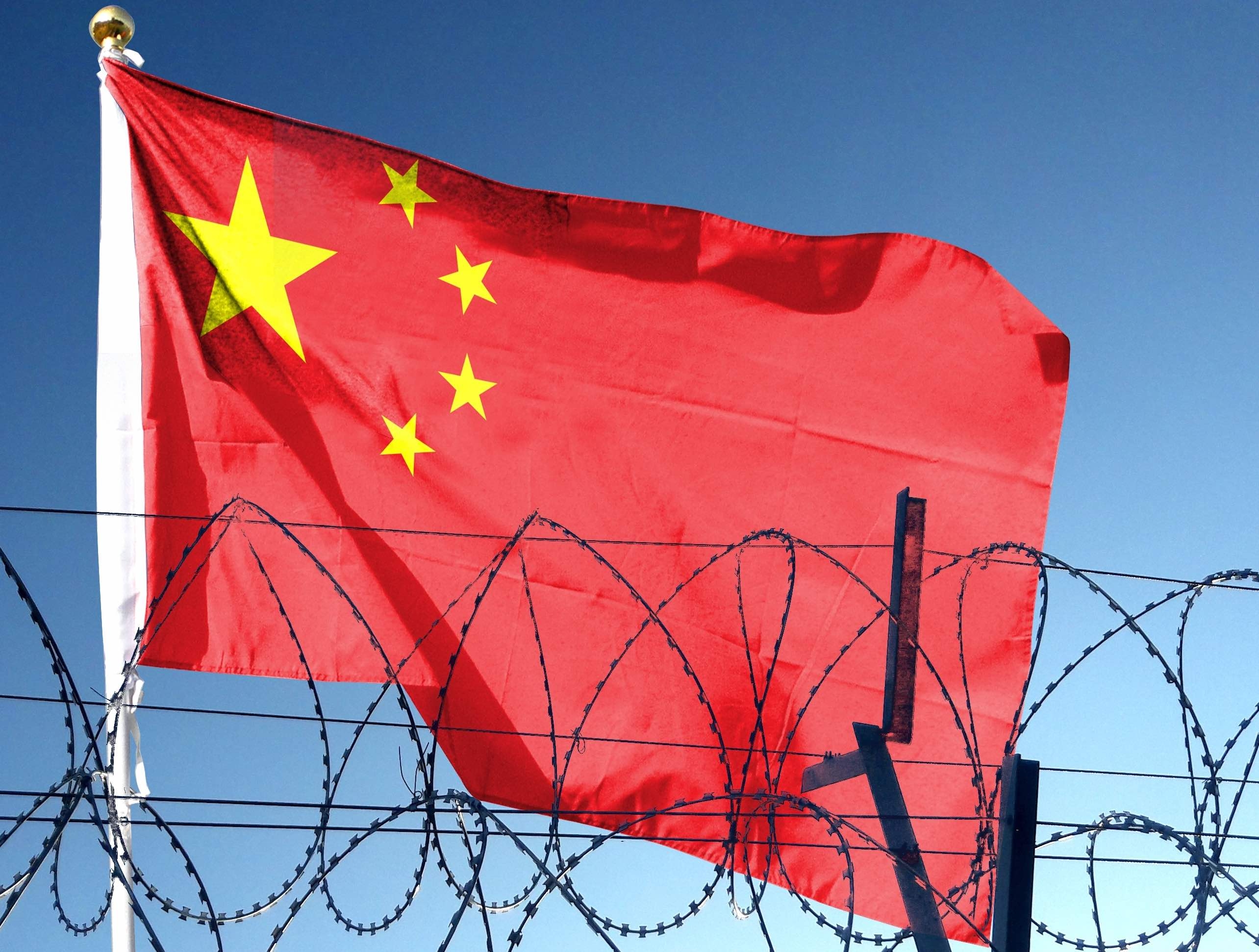 safeguarddefenders.com
safeguarddefenders.com
cross-posted from: https://feddit.org/post/3597758 > China criminalizes human rights defenders with laws on Disturbing Social Order, while the top crime category across whole population is Endangering Public Security, an analysis by the Safeguard Defenders has found. > > Safeguard Defenders analysed around 1,400 human rights-related court cases in China over the past 15 years. We used it show that the Chinese Communist Party continues to arrest and impose lengthy sentences on religious groups. > > Decided criminal cases in courts of first instance as recorded on the Chinese Supreme Court’s National Court Judicial Statistics Bulletin (Gongbao) have grown from 766,746 in 2009 to 1,038,523 in 2022. That’s an increase of more than one third over 13 years. Total decided cases reached a peak in 2019 at almost 1.3 million, according to Safeguard Defenders. > > Many of China’s laws are left intentionally vague, allowing the justice system great freedom to define its limits at will, the NGO adds. > > Decided cases in courts of first instance in the category Endangering Public Security have risen four-fold from 86,814 in 2009 to 350,290 in 2022. > > Obstructing the Administration of Social Order has also more than doubled from 133,639 to 298,803 over the same period. > > [Decided cases are close to, but not exactly the same as, convictions. Decided cases are those that have gone to trial and reached a verdict (both guilty and non-guilty) in a court of first instance (that means it does not include appeals). Since convictions in China are near 100%, we can assume that this number is almost the same as first-instance convictions, Safeguard Defenders says.] [Edit typo.]
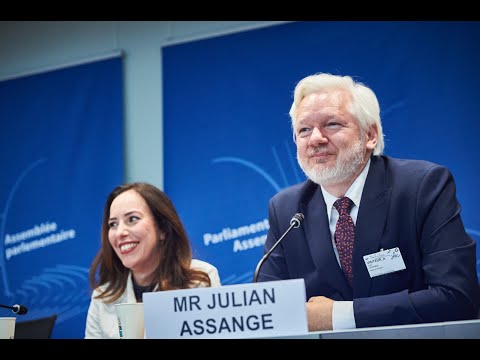 www.youtube.com
www.youtube.com
cross-posted from: https://feddit.nl/post/21795594 > When? > > Oct 1st, 8:30am CEST > --- > --- > > More info on the event: > > https://pace.coe.int/en/news/9600/julian-assange-to-attend-a-pace-hearing-in-strasbourg-on-his-detention-and-conviction-and-their-chilling-effect-on-human-rights > >
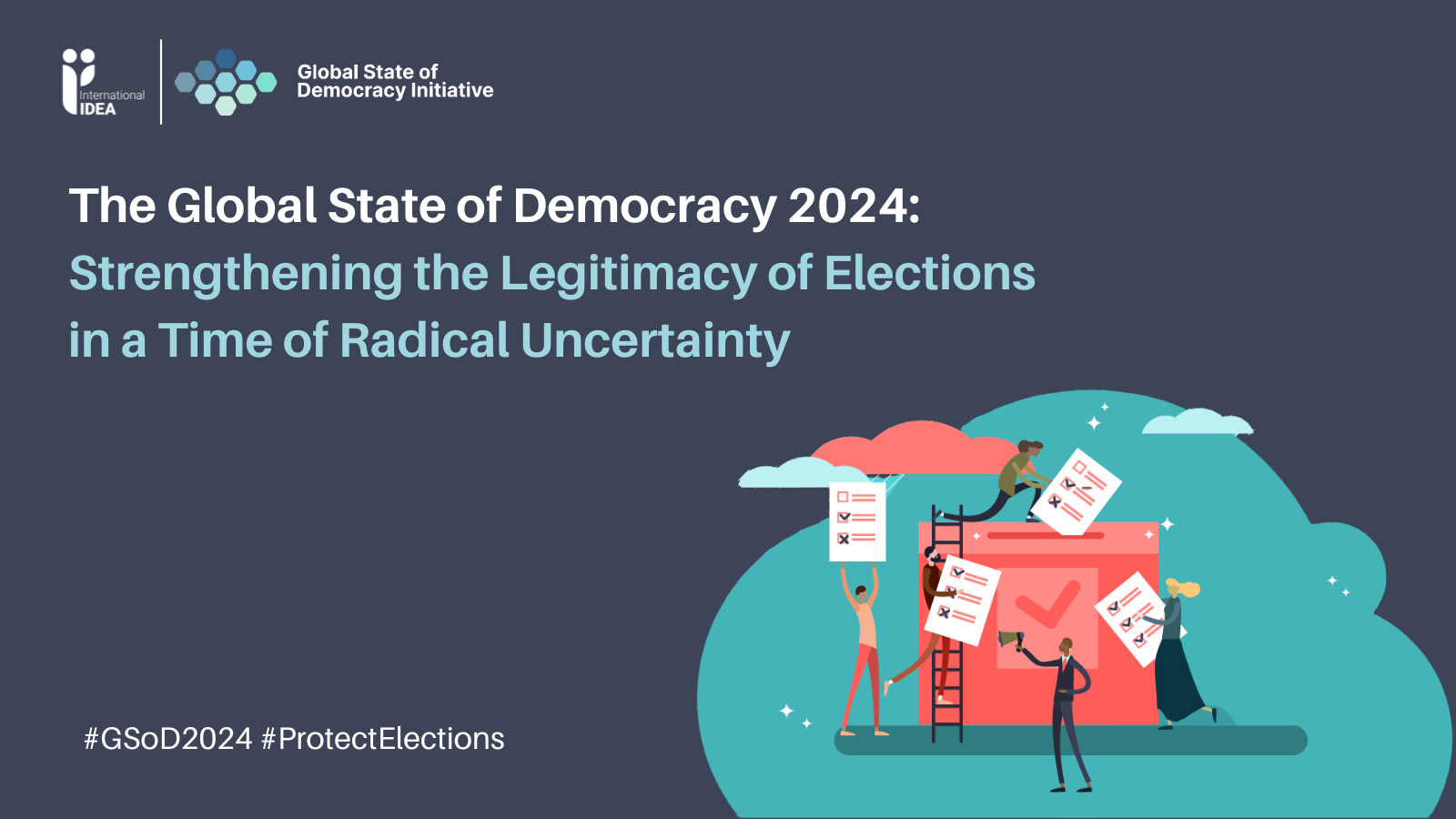 www.idea.int
www.idea.int
**In 20 percent of national elections, at least one losing candidate or party rejects the result as global voter turnout falls 10 percentage points from 2008 to 2023.** The report (as pdf): [English](https://cdn.sanity.io/files/2e5hi812/production-2024/0134f4cc56156db21ee23cf1072ab6d71704cd51.pdf) [Arabic](https://www.idea.int/sites/default/files/2024-09/IDEA-GSoD%202024-PR-GLOBAL-EMBARGOED-ARABIC.pdf) [Spanish](https://www.idea.int/sites/default/files/2024-09/IDEA%20GSoD%202024%20PR-GLOBAL-SPANISH-17092024.pdf) [Portuguese](https://www.idea.int/sites/default/files/2024-09/IDEA%20GSoD%202024%20PR-GLOBAL-PORTUGUESE-17092024.pdf) [Swedish]([decline](https://www.idea.int/sites/default/files/2024-09/IDEA%20GSoD%202024%20PR-SWEDISH-17092024.pdf)) [French](https://www.idea.int/sites/default/files/2024-09/IDEA%20GSoD%202024%20PR-GLOBAL-FRENCH-17092024.pdf) The credibility of elections is under threat globally as fewer people turn out to vote and results are increasingly contested. Almost one in three voters this year is casting a ballot in countries where election quality is worse than five years ago, according to a report by the International Institute for Democracy and Electoral Assistance (International IDEA). - Globally, in almost 20 per cent of elections between 2020 and 2024, one of the losing candidates or parties rejected the results, and elections are being decided by court appeals at the same rate. In total, one in three elections was disputed in some way, from boycotts to legal challenges. - The global average percentage of the voting age population who vote has declined from 65.2 per cent in 2008 to 55.5 per cent in 2023. - Only one in four countries is making progress in democratic performance while four out of every nine are worse off. - In 2023, the Credible Elections indicator was significantly lower in 39 countries (21 in Africa) than in 2018. Only 15 countries had higher scores than five years before. - Declines have been most concentrated in Representation and Rights categories. Within Representation, the factors of Credible Elections and Effective Parliament have declined the most, while Economic Equality, Freedom of Expression and Freedom of the Press are the most negatively affected aspects of Rights. ‘This report is a call for action to protect democratic elections,’ said International IDEA’s Secretary-General, Kevin Casas-Zamora. ‘Elections remain the single best opportunity to end democratic backsliding and turn the tide in democracy’s favour. The success of democracy depends on many things, but it becomes utterly impossible if elections fail.’
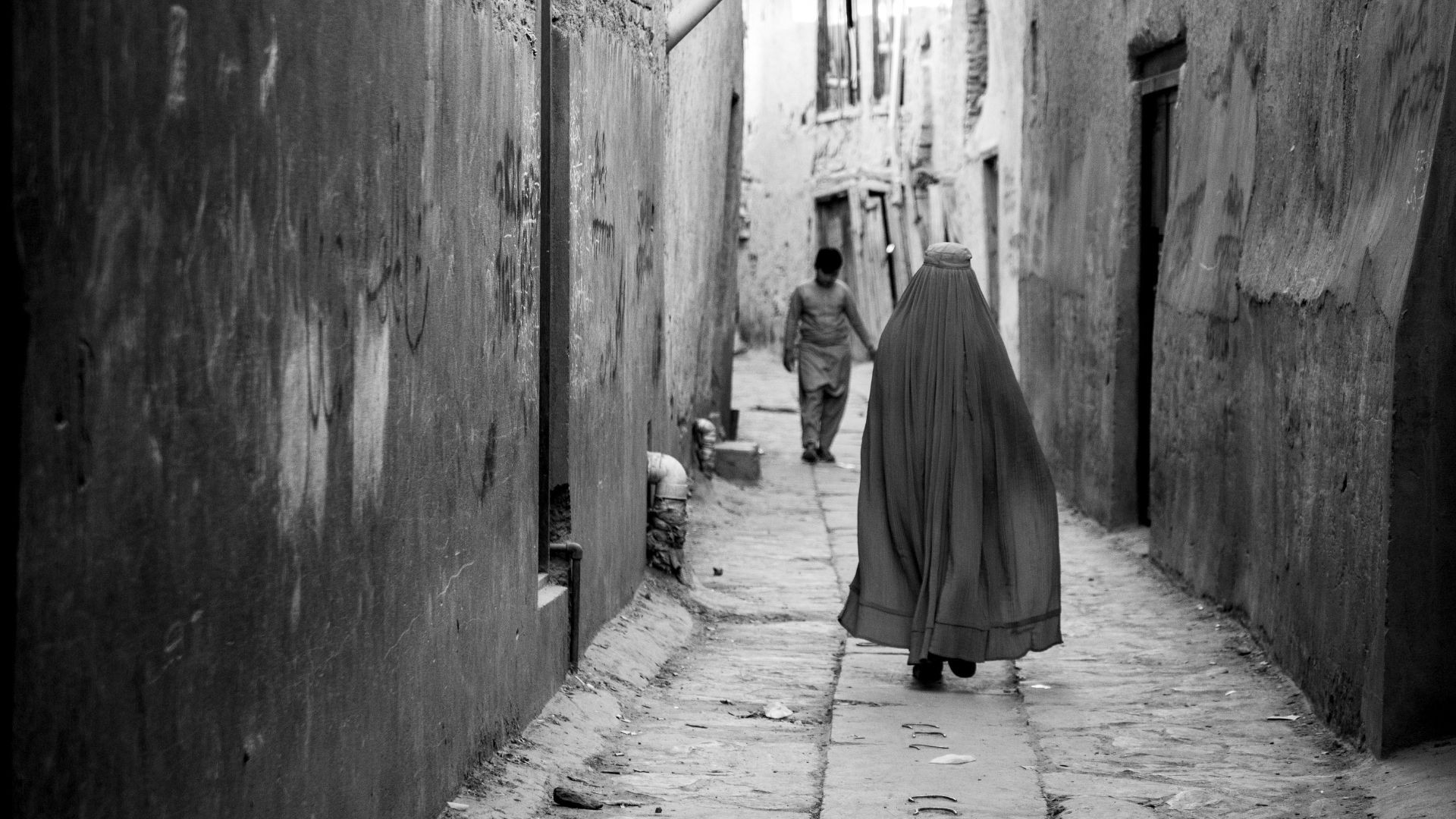 www.afghanwitness.org
www.afghanwitness.org
[Archived link](https://web.archive.org/web/20240815163942/https://www.afghanwitness.org/reports/the-erasure-of-women) The Taliban’s discriminatory policies towards women, and their strict implementation, amounts to a deliberate attempt to erase women from public life, the NGO Afghan Witness (AW) finds in a report. "These policies have resulted in the systematic exclusion of women from many public spaces in Afghanistan, including education, the work force, and even online. Most significantly, these policies have resulted in gender–based violence and femicide, an absolute erasure from female participation in Afghan life." - Taliban policies have resulted in a reported 25% increase in the rate of child marriage, and a 45% increase in the rate of early childbearing, alongside associated negative inter-generational social and economic consequences. - Reports monitored by AW between January 2022 and June 2024 found that at least 840 women and girls were the victims of gender-based violence, many at the hands of the Taliban. Of these women and girls, at least 332 were killed. These figures likely significantly understate the scale of gender-based violence in Afghanistan, as these issues often go unreported, further underscoring the erasure of women and girls from Afghan society. - Since girls are banned from attending school beyond the sixth grade (ages 11-12), and women from pursuing higher education in, a reported 80% of school-aged girls and young women in Afghanistan do not have access to education. Afghanistan is the only country in the world to have banned girls’ education. - Between 2020 and 2023, according to the World Bank, women’s labour force participation rate fell from 16% to 5%. Afghan women have been restricted in the types of government positions they are allowed to hold, being banned from working in the civil service, and have been prohibited from working for NGOs. - In January 2024, the Taliban initiated a campaign to arrest women and girls for non-compliance with mandatory hijab rules. Dozens of women and girls were taken into Taliban custody, with many reporting degrading treatment, torture, and even rape. The arrests led to widespread fear among Afghan women and girls, and reports of families preventing women and girls from leaving their houses due to safety concerns, as well as social stigma surrounding women held in Taliban custody. Despite increased restrictions on women’s rights, women’s protests remain active in Afghanistan. However, over the past three years, the number of outdoor protests sharply decreased, while ‘indoor protests’ in private spaces has risen, indicating that women are prioritising their safety amidst a wave of Taliban suppression and intimidation of protesters, Afghan women have also established libraries, secret schools, and underground beauty salons. Moreover, those in exile have launched campaigns, protests, and newsrooms, giving a voice to those severely suppressed inside the country.
 newrepublic.com
newrepublic.com
[Archived link](https://web.archive.org/web/20240815132633/https://newrepublic.com/article/184875/climate-protest-cellist-citibank-arrest) The fossil fuel industry is attempting to codify criminal penalties for some forms of climate protest. Pressed by industry donors, [U.S.] Congress has been working to broaden preexisting laws against destroying pipelines—a felony mandating up to 20 years in prison—with more expansive language extending such penalties to people who “[impair] the operation of” pipelines. Indigenous and other environmental activists rightly fear that the whole range of pipeline protests—from sacred rituals to Willie Nelson concerts—could be effectively outlawed. Exxon Mobil, Koch, and other bad actors have been lobbying hard for this, even as peaceful pipeline protesters are already finding themselves facing stiff prison sentences. [...] In the United Kingdom, too, climate protesters are facing alarming crackdowns. Last month, five Just Stop Oil protesters who had nonviolently stopped traffic on a major roadway in southern England were sentenced to four years each, with the leader of the group receiving a five-year sentence. [...] [Similarly] some of those who protested on [U.S.} university campuses against the war in Gaza this past year were initially charged with felonies (thankfully most of those have been dropped). Students at George Washington University are facing orders to stay away from campus, which will vastly complicate their academic lives, and is, according to local experts, a dramatic departure from past prosecution of protest in the District of Columbia. [...] Other than the Anglo-American world, where else is protest criminalized to this extent? The answer isn’t pretty: China, Cuba, Bangladesh, Belarus, the United Arab Emirates, Kazakhstan, and other places with authoritarian regimes. These aren’t countries whose political culture most Americans would like to emulate. But some elites clearly disagree. Just as Donald Trump and Elon Musk think it’s legitimate (and even funny) to talk about firing striking workers, billionaire snowflakes who profit from the climate crisis want to punish anyone who threatens their complacency, or their ability to ravage our planet unimpeded.
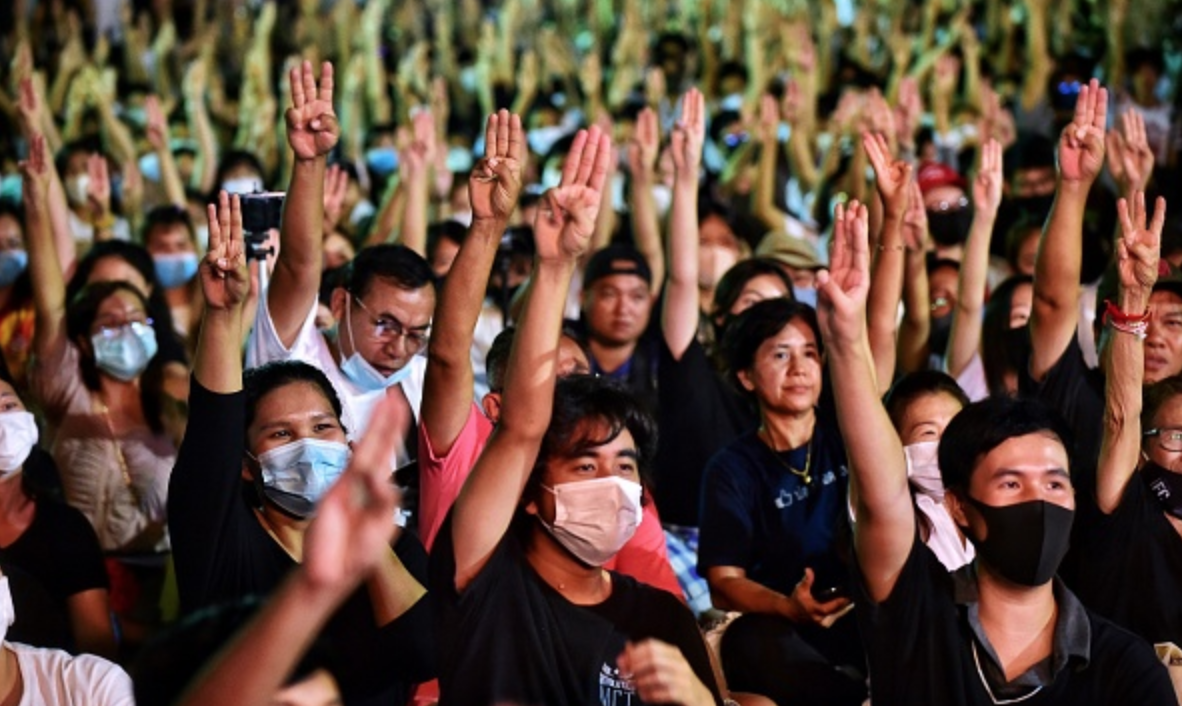 wagingnonviolence.org
wagingnonviolence.org
https://wagingnonviolence.org/2024/08/anti-authoritarian-organizer-scot-nakagawa-participation-advantage-confronting-political-violence For more than 40 years, Scot Nakagawa has served as an organizer, political strategist and social movement analyst in the struggle against authoritarianism. A movement veteran, Nakagawa got his start in in the U.S. in the late 1980s, where he worked on anti-racist and LGBTQ+ organizing, drawing not only parallels between the threats communities were facing but also the potential organizing solutions. In this interview, he stresses the importance of learning from others when abroad who struggle in their fight for human rights and democracy, and that each non-violent movement become stronger as diversity increases. We should be "promoting diversity within our movements, centering women’s leadership, and making movements not all about doom and gloom, " Nakagawa says. >People tend to go along with majorities. If we say the majority of people are becoming hateful, people tend to become more hateful, for instance. Spreading messages of hope can make people more hopeful. And hope is the cure to nihilism, and nihilism is the fuel of authoritarianism. So we need to be hopeful — and we need to be hopeful in ways that are concrete and not just about flowery language and lovely platitudes. We need to actually talk about what can be achieved.
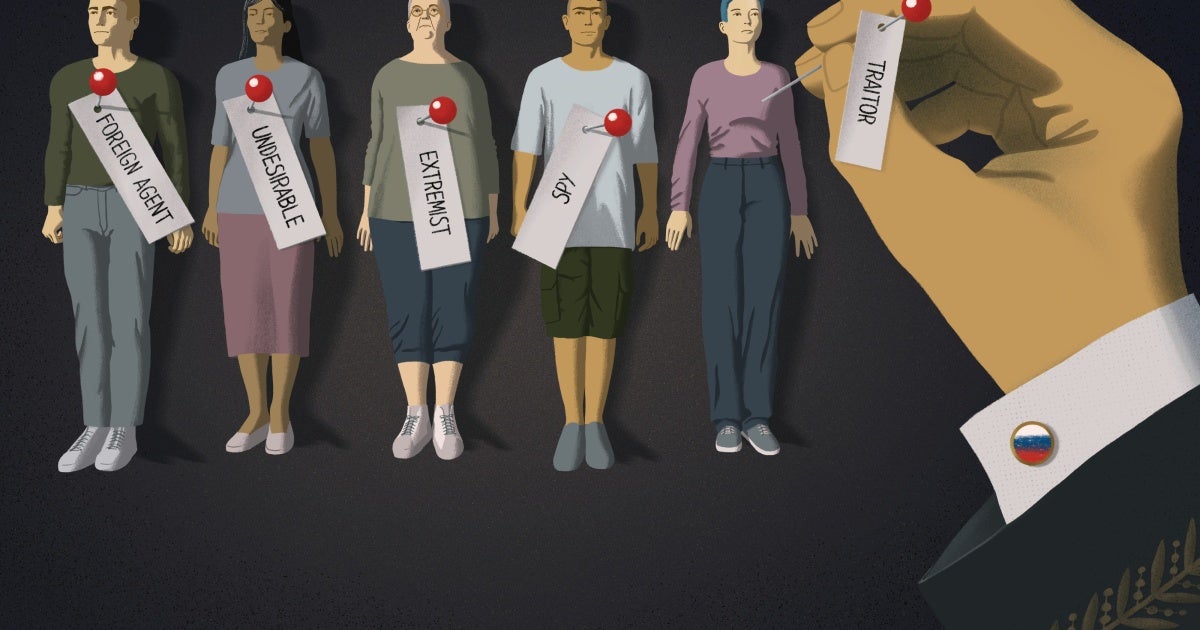 www.hrw.org
www.hrw.org
The Russian government’s dismantling of civic freedoms since its full-scale invasion of Ukraine in February 2022 is a dramatic escalation of its sustained assault on fundamental rights spanning more than a decade, Human Rights Watch said in a report released today. The 205-page report, “[Russia’s Legislative Minefield: Tripwires for Civil Society since 2020](https://www.hrw.org/node/388745),” focuses on the wave of repressive legislation and policies that the Russian government of President Vladimir Putin has adopted since 2020 and how the Kremlin has used them to suppress internal dissent and incapacitate civil society. These laws severely restrict the rights to freedom of expression, association, and peaceful assembly, and impose state-enforced historical, social, and political narratives in public life. Penalties have stiffened over time and now include fines, imprisonment, and revocation of citizenship for naturalized citizens. By 2022-2023, amendments also excluded alleged “foreign agents” from many aspects of public life, including civil service and teaching, as the authorities sought to create, in the words of one activist, “a caste of untouchables.” A series of amendments shredded what had remained of freedom of peaceful assembly, effectively making legitimate protest illegal, Human Rights Watch said.
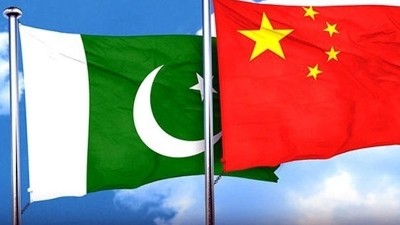 morungexpress.com
morungexpress.com
Pakistan is once again engulfed in a summer of protests, facing significant social upheaval with ongoing anti-state demonstrations in many areas [...] The state's response to the current unrest combines longstanding repressive tactics with new approaches [that seem to be] heavily influenced by its subservient and dependent relationship with Beijing. The Pakistani security agencies have adopted new repressive methods to suppress domestic dissent, especially in Balochistan and KPK, areas where Pakistan has upheld a quasi-imperial political structure since the mid-20th century [...] Pakistan's tactics closely resemble China's longstanding approach to suppressing social unrest, political resistance, and minority groups. Beijing is a symbol of extending authoritarianism into the digital realm through mechanisms such as the 'Great Firewall' and the 'Great Digital Wall of China'. The Chinese government has created one of the most restrictive media environments worldwide, implementing stringent censorship "to control information in the news, online, and on social media". Additionally, it has established numerous concentration camps in Xinjiang for the ethno-religious Uyghur Muslim minority. These camps, termed "re-education camps" by the state, hold millions of Uyghurs. The Chinese government also compels Uyghur women to marry Han Chinese men as part of its effort to suppress this ethnically and religiously distinct minority, which it views as a challenge to its homogenization agenda. Similarly, cultural assimilation tactics have been employed against Tibetan Buddhists to integrate them into the dominant Han Chinese culture. Drawing from China's methods to suppress minorities and stifle political dissent, Pakistan's military-dominated establishment [...] has recently sanctioned the creation of a national digital firewall. This firewall, sourced from China, effectively grants the Pakistani state the authority to regulate social media platforms and restrict citizen access to crucial socio-political sites like Facebook, Instagram, YouTube, and TikTok [which] allows government agencies to trace individual IP addresses, which Pakistani officials label as primary sources of ongoing "anti-state propaganda" [...] In addition to implementing a nationwide digital firewall, the Pakistani government has also pledged to regulate the use of virtual private networks (VPNs) within the country [...] This scenario highlights how Pakistan is adopting the repressive tactics of the Chinese state, using them to target Baloch and Pashtun communities, and rendering their struggle invisible while continuing to suppress their calls for an end to ongoing state abuses.
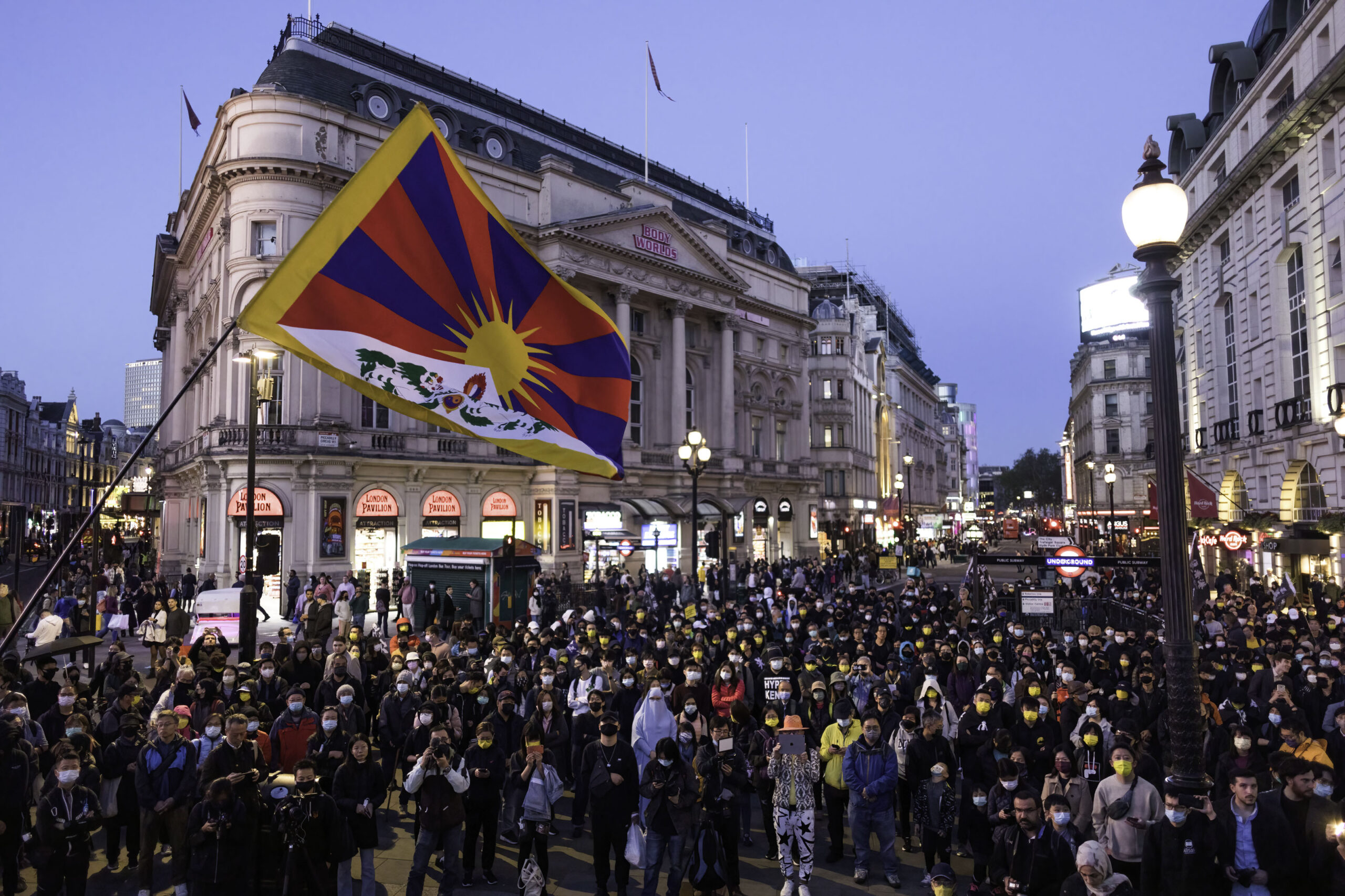 www.journalofdemocracy.org
www.journalofdemocracy.org
*Written by **Kevin Sheives**, Deputy Director of the International Forum for Democratic Studies at the National Endowment for Democracy, and **Caitlin Dearing Scott**, Director for Countering Foreign Authoritarian Influence at the International Republican Institute.* >Beijing’s effort to undermine core democratic values and practices spans the globe and includes: a school in Tanzania where the CCP [Chinese Communist Party] trains members of African political parties; the muzzling of newspaper editors and journalists in Canada, South Africa, and Malaysia; secret pay-to-play deals for PRC-sponsored infrastructure and media projects in Ecuador, Sri Lanka, and the Solomon Islands; the manipulation of university life in Germany, New Zealand, and the United States to limit criticism of the CCP regime and push “positive” views of China; and the use of CCP-affiliated media concerns and business groups to support pro-Beijing political candidates in Australia, Taiwan, and the United States [...] >In this campaign [of the CCP], civil society and the broader nongovernmental sector has come under attack. To eliminate any opposition to CCP rule under Xi Jinping, the CCP has conducted a sustained assault on China’s own civil society. As the world saw in the A4 protest movement in November 2022, a single spark could ignite the underlying frustration that so many Chinese citizens face when denied their basic freedoms. At home, the CCP is bent on curbing social unrest by coopting or targeting civil society [...] >In South Asia, it financed an academic culture that lauded the Belt and Road Initiative and used fear of lost scholarships to make South Asian students in China avoid “controversial” topics. In Kenya, journalists have said that their reporting on a PRC-built railway brought their publications warnings of ad boycotts by PRC-based companies. And among Chinese dissidents abroad or even foreign citizens of Chinese heritage, Freedom House paints a picture of “the most sophisticated, global, and comprehensive campaign of transnational repression in the world.” [...] >In an era when public trust in government and other key institutions has declined, civil society can also speak locally and credibly. Civic organizations’ proximity to their constituents is a key component of their local legitimacy, which can make them effective at countering PRC narratives [...] Advocacy and other civil society activities can also be particularly sensitive to the will of citizens. One Peruvian environmental-advocacy group exposed the negative impact of a PRC company on Amazonian and indigenous areas, activating Peruvian policymakers and even the PRC embassy to address these community vulnerabilities. In Ghana, a consortium of journalists, researchers, and activists exposed Chinese companies’ illegal mining activity. The revelations not only sparked new policy platforms for Ghanaian political parties, but the continued public pressure on Ghanaian law enforcement led to the prosecution of a Chinese national. A Sri Lankan media organization secured greater transparency and access to information for the public by holding public dialogues and conducting investigations of PRC infrastructure projects in the country [...] >The sprawling, full-spectrum influence and engagement campaign that the Chinese Communist party-state is waging around the world requires an equally comprehensive response from civil societies, governments, and economic actors that back democracy. Yet civil societies must not wait for governments to act. In this escalating contest of values across democratic societies, the CCP is clearly not waiting either.
 hrf.org
hrf.org
Preview snippet: "Across the world this week, authoritarian regimes predictably continue leveraging centralized technologies and top-down policies to tighten their grip on power. In Russia, Vladimir Putin pushes for harsh regulations on Bitcoin mining, citing fears of potential power outages. These measures would grant the regime unilateral control over where Bitcoin can be mined and who can mine it. While cracking down on access to an open network, he is simultaneously advocating for an expansion of a central bank digital currency (CBDC). This would inevitably grant his regime unprecedented control over individual financial transactions."
 www.accessnow.org
www.accessnow.org
[archive.org link](https://web.archive.org/web/20240724131711/https://www.accessnow.org/press-release/civil-society-joint-statement-on-un-global-digital-compact/) > First, and foremost, references to States’ obligations under international human rights law are not sufficiently robust nor consistently mainstreamed throughout the text. We call on Member States to ground all objectives set out in the document in international human rights law. This includes adding references to “international human rights law” while also maintaining the role of international human rights law as a body of international law. For example, we are concerned that paragraph 30(d) refers to “international law” and fails to recognize the need for States to refrain from the use of mass surveillance and ensure that targeted surveillance technologies are only used in compliance with international human rights law, including the principles of legality, legitimacy, necessity, and proportionality. This paragraph should also acknowledge the need for States to promote privacy-preserving and rights-respecting technologies, including end-to-end encryption, pseudonymity, and anonymity, which secure and protect the confidentiality and security of digital communications, in accordance with various UN resolutions (including the UN Human Rights Council resolution on the Right to privacy in the digital age A/HRC/RES/54/21 and the new General Assembly resolution on the Promotion and protection of human rights in the context of digital technologies A/RES/78/213). We further call on Member States to add references to “international humanitarian law” and “international refugee law” where relevant for the same reasons.
Summary provided by https://notegpt.io/pdf-summary **Summary** The International Court of Justice has found that Israel’s policies and practices in the Occupied Palestinian Territory, including East Jerusalem, violate international law. The Court determined that Israel’s actions, such as its settlement policy, acts of annexation, and discriminatory legislation and measures, constitute a breach of international law, including the prohibition on the use of force and the non-acquisition of territory by force. Israel’s presence in the territory is deemed unlawful, and the Court has called for an end to settlement activities, evacuation of settlers, reparations for damages caused, and non-recognition of the illegal situation by states and international organizations. **Key Insights** * The International Court of Justice has determined that Israel’s presence in the Occupied Palestinian Territory, including East Jerusalem, violates international law. * Israel’s settlement policy, acts of annexation, discriminatory legislation, and measures were found to be in breach of international law. * The Court has called for an end to settlement activities, evacuation of settlers, reparations for damages, and non-recognition of the illegal situation. * The General Assembly and Security Council of the United Nations are tasked with considering further action to end Israel’s presence in the territory. * The Court emphasizes the importance of achieving a just and lasting peace in the region for the benefit of all parties involved. **Frequently Asked Questions** **Question** What actions were deemed unlawful by the International Court of Justice in the Occupied Palestinian Territory? **Answer** The Court found Israel’s settlement policy, acts of annexation, discriminatory legislation, and measures to be in violation of international law. **Question** What measures did the Court call for to address Israel’s presence in the territory? **Answer** The Court called for an end to settlement activities, evacuation of settlers, reparations for damages caused, and non-recognition of the illegal situation. **Question** Which international organizations are obligated not to recognize the illegal situation in the Occupied Palestinian Territory? Answer All states and international organizations are obligated not to recognize the illegal situation in the territory. **Question** What role do the General Assembly and Security Council of the United Nations play in addressing Israel’s presence in the territory? **Answer** The General Assembly and Security Council are tasked with considering further action to end Israel’s presence in the Occupied Palestinian Territory.
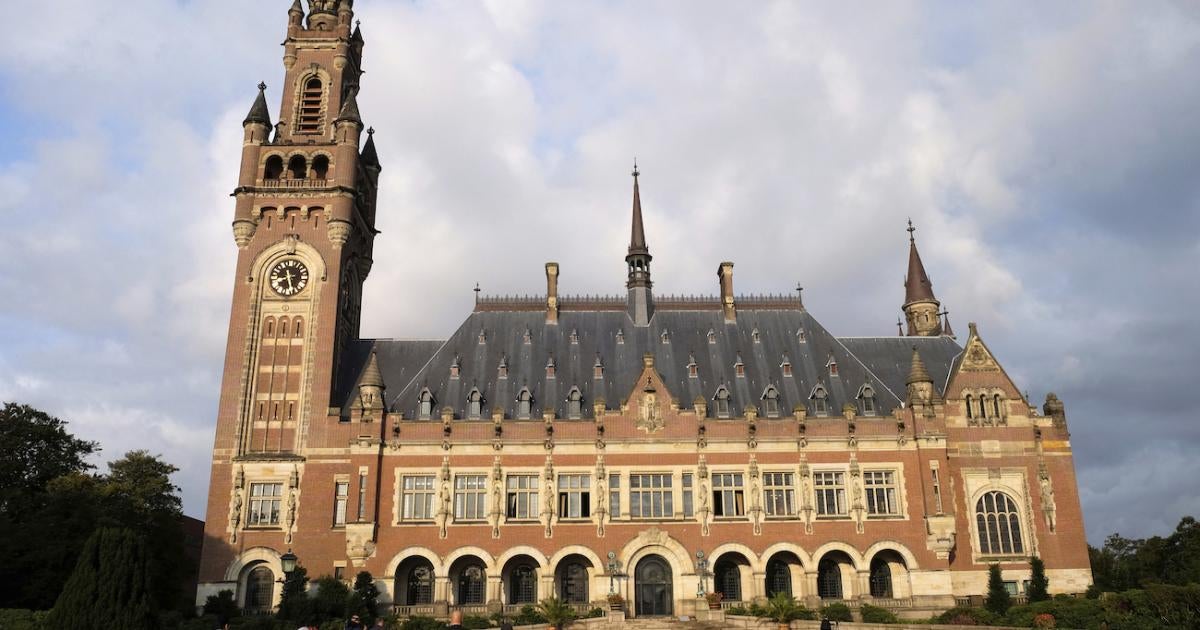 www.hrw.org
www.hrw.org
[archive.org link](https://web.archive.org/web/20240719172242/https://www.hrw.org/news/2024/07/19/world-court-finds-israel-responsible-apartheid) > In a historic ruling the International Court of Justice has found multiple and serious international law violations by Israel towards Palestinians in the Occupied Palestinian Territory, including, for the first time, finding Israel responsible for apartheid. The court has placed responsibility with all states and the United Nations to end these violations of international law. The ruling should be yet another wake up call for the United States to end its egregious policy of defending Israel’s oppression of Palestinians and prompt a thorough reassessment in other countries as well.
[archive.today link](https://archive.ph/I4R8s) > The Finance Bill, 2024 was tabled in parliament on 9 May 2024 and faced strong opposition from members of the public and other stakeholders during the public participation stage. This was due to the threats that it posed to data protection, the business environment, and a choking cost of living crisis that would be worsened by increased taxes. While President Ruto announced the withdrawal of the contentious bill on 26 June 2024, the actions of state authorities prior to and after this decision have created a very chilling environment for citizens, human rights defenders, journalists, and political dissidents opposed to the bill and critical of the government’s actions.
 www.hrw.org
www.hrw.org
[archive.org link](https://web.archive.org/web/20240718162443/https://www.hrw.org/news/2024/07/17/october-7-crimes-against-humanity-war-crimes-hamas-led-groups) > Hamas’ military wing – the Qassam Brigades – and at least four other Palestinian armed groups committed numerous war crimes and crimes against humanity against civilians during the October 7, 2023 assault on southern Israel, Human Rights Watch said in a report released today. Governments with influence over the armed groups should press for the urgent release of civilian hostages, an ongoing war crime, and for those responsible to be brought to justice. > The 236-page report, “‘I Can’t Erase All the Blood from My Mind’: Palestinian Armed Groups’ October 7 Assault on Israel,” documents several dozen cases of serious violations of international humanitarian law by Palestinian armed groups at nearly all the civilian attack sites on October 7. These include the war crimes and crimes against humanity of murder, hostage-taking, and other grave offenses. Human Rights Watch also examined the role of various armed groups and their coordination before and during the attacks. Previous Human Rights Watch reports have addressed numerous serious violations by Israeli forces in Gaza since October 7.
 www.iccl.ie
www.iccl.ie
[archive.org link](https://web.archive.org/web/20240718213342/https://www.iccl.ie/equality-inclusion/joint-statement-european-court-of-human-rights-rules-against-russia-trans-parents-foster-care-termination-violates-family-rights/)
 direitosnarede.org.br
direitosnarede.org.br
[archive.org link](https://web.archive.org/web/20240718182311/https://direitosnarede.org.br/2024/07/08/open-letter-advocating-for-brazilian-ai-regulation-that-protects-human-rights/) > AI is already facilitating and generating harms and violations, for instance, by reinforcing discriminatory practices, excluding marginalized groups from access to essential goods and services, supporting misinformation, undermining democratic processes, surveillance change climate, the epidemic of Indigenous and local languages and cultures, and up job insecurity. > To ensure AI systems promote innovation based on human rights, ethics, and responsibility, it is crucial to establish minimum rules to safeguard the rights of affected individuals, obligations for AI agents, governance measures, and the definition of a regulatory framework for oversight and transparency. This is not prevents development and innovation; on the contrary, effective regulation that rights is an indispensable condition for the flourishing of the world's of the world.
[archive.org link](https://web.archive.org/web/20240718181118/https://www.coe.int/en/web/commissioner/-/protecting-the-human-rights-of-sex-workers) > Council of Europe member states should adopt a human rights based approach to sex work. Such an approach must ensure sex workers’ protection from violence and abuse, their equal access to health and other social rights, as well as their rights to private life and to participate in public and political life. > ... > A human rights based approach also means that consensual sexual relations between adults for remuneration should not be criminalised. Criminalisation and the enforcement of punitive provisions against sex workers, clients or third parties has significantly reduced sex workers’ access to rights and essential services and has led sex workers to live and work in a clandestine manner and in isolation, in fear of the justice system. Conversely, decriminalisation of consensual adult sex work has had positive effects on the safety of sex workers and on their access to social protection and health services, resulting in improved health outcomes. The UN working Group also noted that a decriminalised framework is most conducive to the protection of sex workers’ rights to participate in public and political life.
 www.amnesty.org
www.amnesty.org
[archive.org link](https://web.archive.org/web/20240718142528/https://www.amnesty.org/en/latest/impact/2024/07/six-months-of-wins-for-human-rights/)
 www.iranintl.com
www.iranintl.com
[archive.org link](https://web.archive.org/web/20240718141642/https://www.iranintl.com/en/202407143147) > Without naming Trump, Ahmadinejad took to X to denounce terrorism as a violation of human rights. > "Terror and terrorism, whether state-sponsored or non-state, are among the most heinous anti-human actions that words cannot express the depth of their evil," in an apparent reference to the attack."Humanity around the world suffers from such severe pains," he said on X. > The statement is part of his efforts in recent years to rebrand himself as a moderate figure in Iranian politics, although many still remember his hardline policies during his tenure, which included the arrest, torture, and killing of numerous protesters.
 www.insideworldfootball.com
www.insideworldfootball.com
[archive.org link](https://web.archive.org/web/20240718131959/https://www.insideworldfootball.com/2024/07/18/pressure-builds-fifa-suspend-israel-ahead-extraordinary-council-meeting/) > Both the PFA and IFA have filed their submissions to the panel, but human rights groups are stepping up the pressure on FIFA to take action on Israel. > Earlier this week, FairSquare submitted a report to FIFA arguing that it has “multiple grounds to suspend or expel the IFA”, highlighting among others “the holding of matches in occupied Palestinian territory, serious and systematic racial discrimination, political interference, and Israel’s killing of Palestinian players and the systematic destruction of PFA facilities – most of which predate Israel’s attacks in Gaza since the Hamas attacks of 7 October 2023.” > The terror attacks by Hamas killed 1,200 people on October 7 and Hamas took more than 250 hostages according to Israeli figures, but Israel has killed more than 38,000 Palestinians since, according to Palestinian health authorities. > FairSquare argued that FIFA have to act under article 72.1, article 4.1, article 14.1 (i) and article 15 (c), and article 2.1 of the FIFA Statutes.
 johnmenadue.com
johnmenadue.com
[archive.org link](https://web.archive.org/web/20240716194603/https://johnmenadue.com/federal-parliamentary-committee-presents-a-decisive-case-for-an-australian-human-rights-act/) > It is often said by those who oppose a Human Rights Act that there is no need for one. The human rights of Australians are more than adequately protected by the common law and statute. Anyone still holding that view will be hard pressed to retain it should they read the recent, comprehensive report on the subject prepared by the Australian Law Reform Commission. The report is entitled ‘Traditional Rights and Freedoms: Encroachments by Commonwealth Law. > The report identifies hundreds of provisions in Commonwealth law that may constitute incursions on human rights and freedoms. The nature and extent of the legislative provisions that may be in breach of fundamental rights and freedoms will come as a shock to anyone who cares to delve into the ALRC’s first class report. No report in recent decades has come close to providing such a detailed enumeration, description and analysis of statutory infringements of human rights. Take freedom of speech and procedural fairness as examples.
Hello all of you subscribers! Your appreciative moderator, here, with a quick message. This community was formed approx. a month ago. I didn't expect there to be much activity, but I was hopeful that some solid groundwork it might take off, as the time is right for human rights. There are now 76 of us subscribed. People other than myself have started posting, which is great to see. We've started to see some comments coming in, which is also great to see. I spent a couple of weeks laying some groundwork posts and then slowed down a little the last couple of weeks, but I think it will be sustainable for me to keep a steady, slow trickle of posts going. This is my first time moderating an online community, so please bear with me as I learn how to keep a community happy and engaged! Thank you for taking the time to read this and to care about human rights.
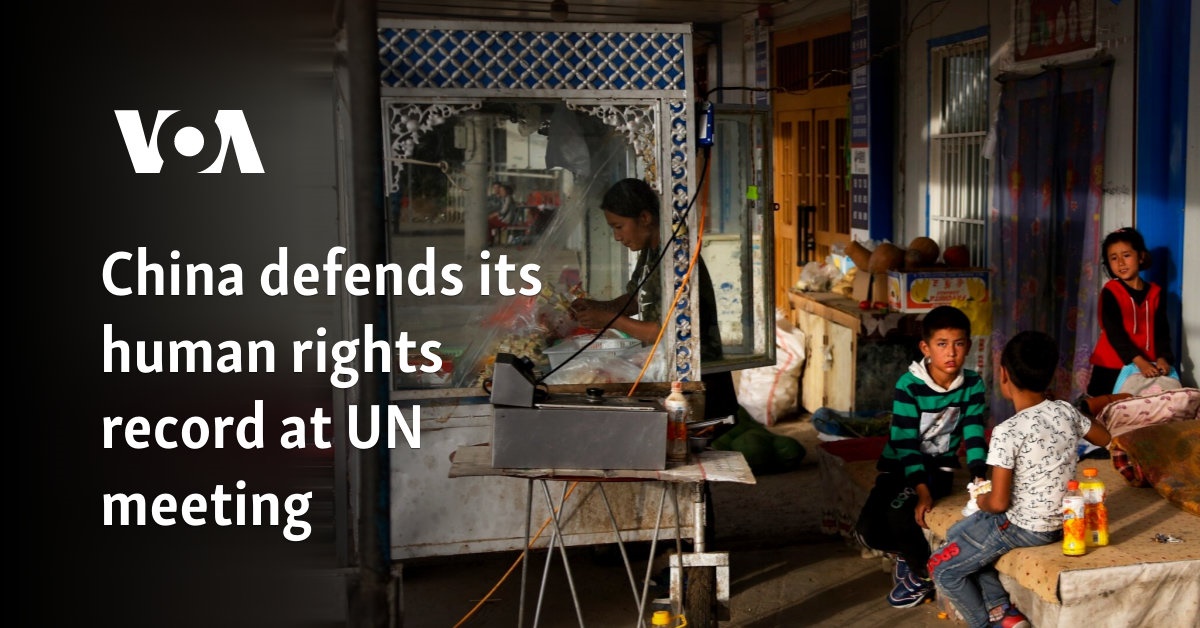 www.voanews.com
www.voanews.com
[archive.org link](https://web.archive.org/web/20240705140551/https://www.voanews.com/a/china-defends-its-human-rights-record-at-un-meeting/7686015.html) > Chen Xu, China's ambassador to the U.N. in Geneva, said at the meeting, attended by a delegation of Chinese diplomats and officials, that recommendations rejected by China were "politically motivated based on disinformation, ideologically biased or interfering in China's traditional sovereignty." He condemned what he called an attempt to "smear and attack" China. > China has drawn much criticism over the years for its treatment and detention of Uyghurs and other Muslims. A 2022 U.N. report, published by former U.N. rights chief Michelle Bachelet, said China's treatment of Uyghurs could constitute crimes against humanity, something China has consistently denied. > Thursday's review of China's human rights record before the Human Rights Council was the first since the publication of the 2022 report. ... Each U.N. member state undergoes a review of its human rights record every few years.
 www.theguardian.com
www.theguardian.com
[archive.org link](https://web.archive.org/web/20240705140144/https://www.theguardian.com/global-development/article/2024/jul/02/obsession-with-growth-is-enriching-elites-and-killing-the-planet-we-need-an-economy-based-on-human-rights-olivier-de-schutter) > A “human rights economy” can deliver for people and the planet because it shifts our focus from growth to humanity – grounding the purpose of the economy in fundamental, universal human values. It offers human rights as a guardrail to keep the economy on track – meeting the challenges of the climate crisis, addressing inequalities and eradicating poverty. > This proposition is not some fairytale. Concrete steps can be taken now, starting with choosing measures of progress other than gross domestic product (GDP) – which tells us nothing about the ecological or social fallout of economic activity. > And we need to start valuing what really counts. GDP has no way of accounting for the estimated 16.4bn hours spent every day worldwide on unpaid work, largely carried out by women, that underpins the global economy: caring for children, people with disabilities and older citizens.

cross-posted from: https://lemmy.ml/post/17612573 > cross-posted from: https://lemmy.ml/post/17610222 > > > Source: [Stella Assange](https://njump.me/nevent1qvzqqqqqqypzqvaawljnj3fqw3l64cfeff90t7j87szr39nkxadkm3a7se0ds9zjqqsvss7wvdetp7r22tz5d447jmry7w6d9535jrcwem8dl5c677utapqdt8r6x) via nostr
 www.hrw.org
www.hrw.org
[archive.today link](https://archive.ph/B0H43) > All victims of gross human rights violations in Palestine and Israel are owed reparation, Human Rights Watch said today. Human Rights Watch on June 26 submitted recommendations to the UN Special Rapporteur on the situation of human rights in the Palestinian territories occupied since 1967. The rapporteur, Francesca Albanese, had invited input to inform her October 2024 report to the United Nations General Assembly on the ongoing hostilities. > Under international law, governments responsible for abuses are obliged to provide effective remedies for human rights violations, including through truth, justice, compensation, memorialization, and guarantees of non-recurrence. Non-state armed groups also have responsibilities to provide reparation. Reparation processes should center on the rights of victims and be carried out after meaningful and effective consultations with them. Other countries that have, or whose businesses have, supported one side or the other should contribute to reparations and all other countries should press the parties to the conflict to commit to provide reparations. > “The parties to the conflict need to repair the harm they have caused to victims in the ongoing hostilities,” said Clive Baldwin, senior legal adviser at Human Rights Watch. “Governments supporting Israel and Palestinian armed groups should not only use their leverage to stop further abuses, but also to ensure that victims and survivors receive meaningful reparations.”
 eng.belta.by
eng.belta.by
[archive.org link](https://web.archive.org/web/20240620130632/https://eng.belta.by/society/view/belarus-russia-issue-joint-report-on-human-rights-situation-in-certain-countries-159256-2024/) > The Ministries of Foreign Affairs of Belarus and Russia have prepared the first joint report on the human rights situation in certain countries. The document was published on the websites of the foreign ministries on the morning of 20 June, BelTA has learned. > The review covers more than 40 countries. Among them are many EU countries (including the closest neighbors of Belarus), the UK, the United States, Canada, Japan, Australia and New Zealand, Ukraine, Moldova and others. > A very detailed fact-finding report has been prepared for every country. As visual confirmation, the document has numerous photos. The document is large, more than 1,800 pages long! > Addresses to readers were written by Belarusian Minister of Foreign Affairs Yuri Ambrazevich and Russian Deputy Foreign Minister Sergei Vershinin. As they noted, the facts the Report contains show that racist and neo-colonial views are typical of Western "model democracies" in principle.
 www.nytimes.com
www.nytimes.com
[archive.today link](https://archive.ph/DxUDr) > Evidence cited in the ruling showed how Russia, and its proxy government in the region, have created an atmosphere of oppression, using blanket laws targeting extremism and terrorism to silence dissent. Pro-Ukrainian media outlets have been abolished, while the Ukrainian language has been suppressed in schools. Ukrainian banks have been nationalized, along with their customers’ property and assets, the court found. > Crimean Tatars, an ethnic minority, have also been targeted, and between 15,000 and 30,000 Tatar have fled the region since 2014. Tatar television channels have been removed from the air, their cultural and religious buildings vandalized and some Tatar homes have been painted with crosses. Any gatherings by Tatar leaders or groups deemed pro-Ukrainian have been violently broken up, with attendees detained. > Crimea’s occupying government has also cracked down on religious diversity, raiding madrassas and mosques, expelling Ukrainian Orthodox priests and repurposing their churches. Journalists critical of the regime are also routinely harassed and threatened.
 www.techpolicy.press
www.techpolicy.press
[archive.org link](https://web.archive.org/web/20240625165558/https://www.techpolicy.press/the-promise-and-perils-of-human-rights-for-governing-digital-platforms-symposium-introduction/) > Yet while human rights offer a salient language of social justice, it is unclear whether they are legally and conceptually adequate to address the most important political, social and economic questions and conflicts raised by the platformization of social life. Critical literature suggests that the individualized, state-oriented legal protections and non-confrontational language of human rights have historically been as likely to stabilize state and corporate power as to challenge it. Moreover, technology regulation scholars argue that greater attention should be directed towards how digital platforms are transforming the material and socio-technical environments that constitute the conditions of possibility for realizing human rights in practice.

